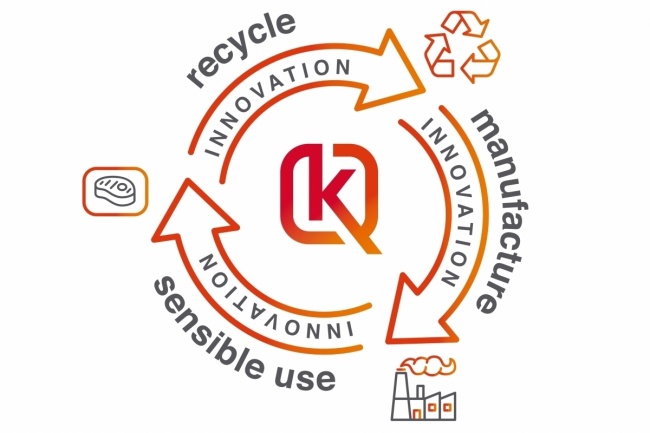During a successful IFFA show in Frankfurt earlier this May, Krehalon presented their sustainability strategy and commitments in response to the rising negativity against plastics.
The company elaborated on the fact they have not referred to their new strategic direction as a ‘plastic pledge’ because they had a different approach to the plastics conundrum compared to many:
‘People and organisations are becoming cynical towards all the ‘plastic pledges’ and promises issued by companies over the past year. We didn’t want to be yet another ‘bold statement’ brand.
We believe that making sustainability decisions is more than just appearing decisive. It’s about careful consideration of the long-term consequences and successful delivery of an optimal outcome – both for us as a valued business and for the environment.
We’ve taken the time to reflect on our sustainability journey so far and carefully define our future goals and direction. We’re not launching a pledge, but a progress report that outlines our sustainability successes over the past 40+ years.
As the name ‘Transparent View on Plastics’ suggests – this is an objective review of our sustainability achievements and commitments and an honest vision of what we aspire to be.’
– explains Petya Todorova, Marketing Leader Europe and Circular Economy champion within Krehalon.
How would you ensure long-term success?
‘Making evidence-based decisions is crucial. We need to gather and understand the facts first – relying on industry case studies and trials as well as careful evaluation of full life cycle analysis and carbon impact of newly developed solutions. Ultimately, developing sustainability solutions with a long-term perspective rather than short-term reactivity to consumer pressures.
We do, however, understand that consumers are a key stakeholder in the successful transition to a new, circular economy for plastics. As such, we believe that taking the role of Positive Plastic Advocates will help educate consumers about the value and benefits of responsible plastic use and promote a culture of trust, accountability and transparency to secure long-term success.’
Take a look at Krehalon’s Circular Economy goals and progress so far and find out what collaborative initiatives we are part of to help us accelerate development of new, more circular approaches to packaging.
Krehalon went on to explain the three important questions that defined the company’s new sustainability direction:
What is Krehalon’s ultimate goal?
‘Customers are often unlikely to compromise on packaging performance. And performance can mean many different things within the fresh food packaging industry – e.g. achieving sealability, formability or strength of materials; extending shelf life, ensuring attractive product presentation and maximum convenience; or meeting all-time-high food safety and hygiene controls. But most often – performance is a complex mixture of all.
As such, our ultimate sustainability goal is designing packaging with exceptional environmental efficiency but little or no compromise on performance. Product which, in its creation, leaves no indelible mark on the Planet and sits comfortably within a focused closed-loop system.’
How are you planning to achieve this?
‘Simply put – hard work and joined up thinking will determine the successful achievement of our sustainability goals. This means close industry collaboration through initiatives involving the full supply chain – we are part of CEFLEX, The UK Plastics Pact, The Sustainable Food Initiative (SFI).
We are constantly developing packaging solutions that use less volume / weight / thickness of materials without sparing vital functionalities. The innovative construction of our core ML40 technology gives the exceptional advantage of reducing material thickness without compromising material’s barrier properties and strength. This allows us to develop ‘thinner but stronger’ food packaging materials that constantly challenge competitors and offer significant packaging weight reductions over conventional pack formats.
We are in close collaboration with resin producers and working together on NPD projects that aim to develop new, innovative product formulations that achieve full recyclability of shrink barrier packaging. Our R&D teams are also keeping abreast with newly developed technologies, such as chemical recycling, that could allow full recyclability of our existing multi-layer structures.’


